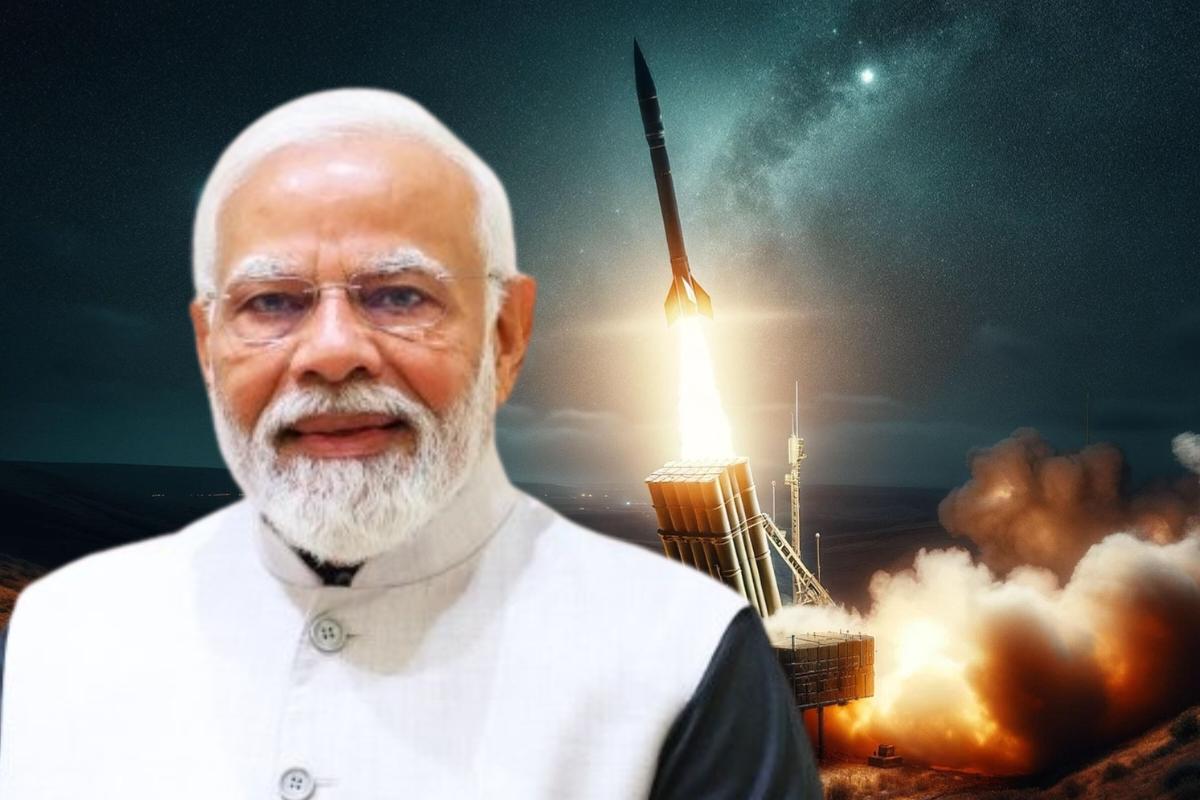
India has successfully developed a new next-generation missile that is set to surpass the capabilities of the world-renowned BrahMos. Designed by the Defence Research and Development Organisation (DRDO), this missile is fully indigenous, lighter, more cost-effective, and significantly more agile. It can rapidly change direction and altitude, fly at low levels to evade radar detection, and can be deployed from land, sea, or air platforms.
In a powerful display of military prowess and political resolve, India has sent an unmistakable message to its neighbor Pakistan through the successful execution of Operation Sindoor. More than a mere military strike, Operation Sindoor has left a deep impact on Pakistan’s psyche, creating a fear that may not be easy to overcome.
Prime Minister Narendra Modi, while addressing a rally in Bikaner, Rajasthan, highlighted the significance of this operation and the government’s unwavering support for the armed forces. He proudly declared that all three branches of the military were given full operational freedom, leading to the creation of a strategic trap that forced Pakistan to its knees.
This sentiment was echoed throughout the Prime Minister's fiery speech, where he emphasized the resolve of the Indian forces in avenging the blood of Indian citizens. Modi’s words carried the weight of action, as he reminded the nation that those attempting to erase India’s pride were themselves wiped out.
In a symbolic and spiritual gesture, PM Modi also visited the revered Karni Mata temple in Bikaner, performing a traditional ritual to seek divine blessings for national security. Karni Mata, known as the goddess of warriors and power, holds a special place in the hearts of Bikaner’s residents and the royal family. Modi’s visit underscored the deep cultural and spiritual connection between the state and India’s defense ethos.
What followed was a clear warning to Pakistan. Modi's speech made it evident that Operation Sindoor was just the beginning. He reiterated that no talks or trade would take place with Pakistan unless the issue of Pakistan-Occupied Kashmir (PoK) was resolved. The Prime Minister made it clear: water, trade, and dialogue were off the table.
India’s military strength was showcased once again when, in response to attacks on the 22nd, Indian forces obliterated nine major terrorist hideouts within 22 minutes. This display of precision and power was meant not just for Pakistan but for the world to witness. Modi’s message was loud and clear — India will not tolerate bloodshed, and every drop will be avenged.
Beyond words, India is also enhancing its defense capabilities. Reports suggest the Defence Research and Development Organisation (DRDO) has developed a new generation missile to potentially replace the BrahMos. This indigenous missile is faster, more maneuverable, and cheaper, making it difficult to detect and intercept. Additionally, the next-generation BrahMos missile is under development, with extended range and reduced weight, allowing lighter aircraft like Tejas to carry more missiles.
Moreover, India is advancing its drone warfare capabilities. The SWiFT kamikaze drone, developed by DRDO, can fly at speeds of 735 km/h and has a range of 200 km. Designed to evade radar, it is built with stealth technology and is capable of suicide missions, targeting enemy bases with precision.
Over the past decade, Prime Minister Modi’s leadership has transformed the Indian military into a modern, technologically advanced force. The result was evident during the recent conflict, where Pakistan’s military assets, including Chinese and Turkish weapons, were reduced to rubble.
India is not stopping at military action. On the diplomatic front, Foreign Minister S. Jaishankar is leading efforts to expose Pakistan’s support for terrorism on global platforms. During his visit to the Netherlands, Jaishankar presented India’s stance on Operation Sindoor and made it clear that any further aggression from Pakistan would be met with a harsh response.
Two Indian delegations have also visited the UAE and Japan, revealing the truth about Pakistan’s actions and further isolating it internationally. Jaishankar stated that ceasefires are only temporary solutions, and if Pakistan continues supporting terrorism, it will face severe consequences.
India's message is clear: its patience has limits, and its retaliation will be swift and unforgiving. The country stands united, with a government that has empowered its military and positioned itself as a formidable force against terror. Operation Sindoor marks not just a military victory, but a new chapter in India’s strategic defense narrative.
Disclaimer:
The content of this article is based on public speeches, official statements, and media reports available at the time of writing. It reflects the author's interpretation for informational purposes only and should not be taken as official defense or government policy. Readers are encouraged to refer to official sources for verified information.




